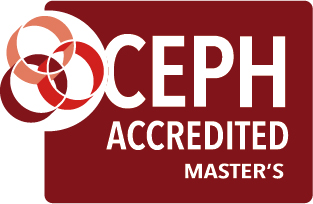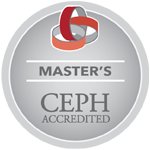Accreditation

The Council on Education for Public Health (CEPH) is an independent agency recognized by the US Department of Education to accredit schools and programs of public health. The Master of Public Health program at Illinois became fully accredited by the CEPH as of June 2013 and has been continuously accredited since that time. The Master of Public Health program at Illinois was reaccredited in 2018, with current accreditation extending until 2025. To obtain copies of the most recent final report and self-study documents, please email mph-admissions@ahs.illinois.edu.
Foundational Competencies
CEPH, the public health accreditation body, developed 22 Foundational competencies that are informed by traditional public health core knowledge areas as well as cross-cutting and emerging public health areas. All accredited MPH programs fulfill these foundational competencies.
|
Evidence-based Approaches to Public Health |
|
|
Public Health & Health Care Systems |
|
|
Planning & Management to Promote Health |
|
|
Policy in Public Health |
|
|
Leadership |
|
|
Communication |
|
|
Interprofessional Practice |
|
|
Systems Thinking |
|
Concentration Competencies
The MPH program has identified five concentration competencies, in addition to the foundational competencies listed above that relate to our mission and health behavior and promotion concentration. These competencies are fulfilled by the four concentration courses.
|
MPH Concentration Competencies |
|


